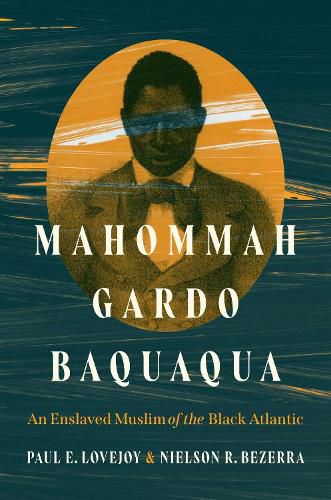Readings Newsletter
Become a Readings Member to make your shopping experience even easier.
Sign in or sign up for free!
You’re not far away from qualifying for FREE standard shipping within Australia
You’ve qualified for FREE standard shipping within Australia
The cart is loading…






A literate Muslim born between 1820 and 1830 in present-day Benin, Mahommah Gardo Baquaqua was enslaved in the interior of West Africa and forcibly moved to Brazil in 1845. He escaped from slavery when his master took him to New York City in 1847. Baquaqua then fled to Haiti where he converted to Christianity. When he eventually returned to the United States, he enrolled in New York Central College. Baquaqua published his autobiography in 1854 and traveled to Liverpool, England, with the intention of returning to Africa. He apparently achieved this goal by the early 1860s, when his paper trail disappears.
Lovejoy and Bezerra's analysis of this remarkable autobiography-the only known narrative by a former Brazilian slave-illuminates what Baquaqua's home in Africa was like, examines African slavery in mid-nineteenth-century Brazil, and offers an Atlantic perspective on resistance to slavery in the Americas in the era of the Fugitive Slave Law of 1850.
$9.00 standard shipping within Australia
FREE standard shipping within Australia for orders over $100.00
Express & International shipping calculated at checkout
A literate Muslim born between 1820 and 1830 in present-day Benin, Mahommah Gardo Baquaqua was enslaved in the interior of West Africa and forcibly moved to Brazil in 1845. He escaped from slavery when his master took him to New York City in 1847. Baquaqua then fled to Haiti where he converted to Christianity. When he eventually returned to the United States, he enrolled in New York Central College. Baquaqua published his autobiography in 1854 and traveled to Liverpool, England, with the intention of returning to Africa. He apparently achieved this goal by the early 1860s, when his paper trail disappears.
Lovejoy and Bezerra's analysis of this remarkable autobiography-the only known narrative by a former Brazilian slave-illuminates what Baquaqua's home in Africa was like, examines African slavery in mid-nineteenth-century Brazil, and offers an Atlantic perspective on resistance to slavery in the Americas in the era of the Fugitive Slave Law of 1850.